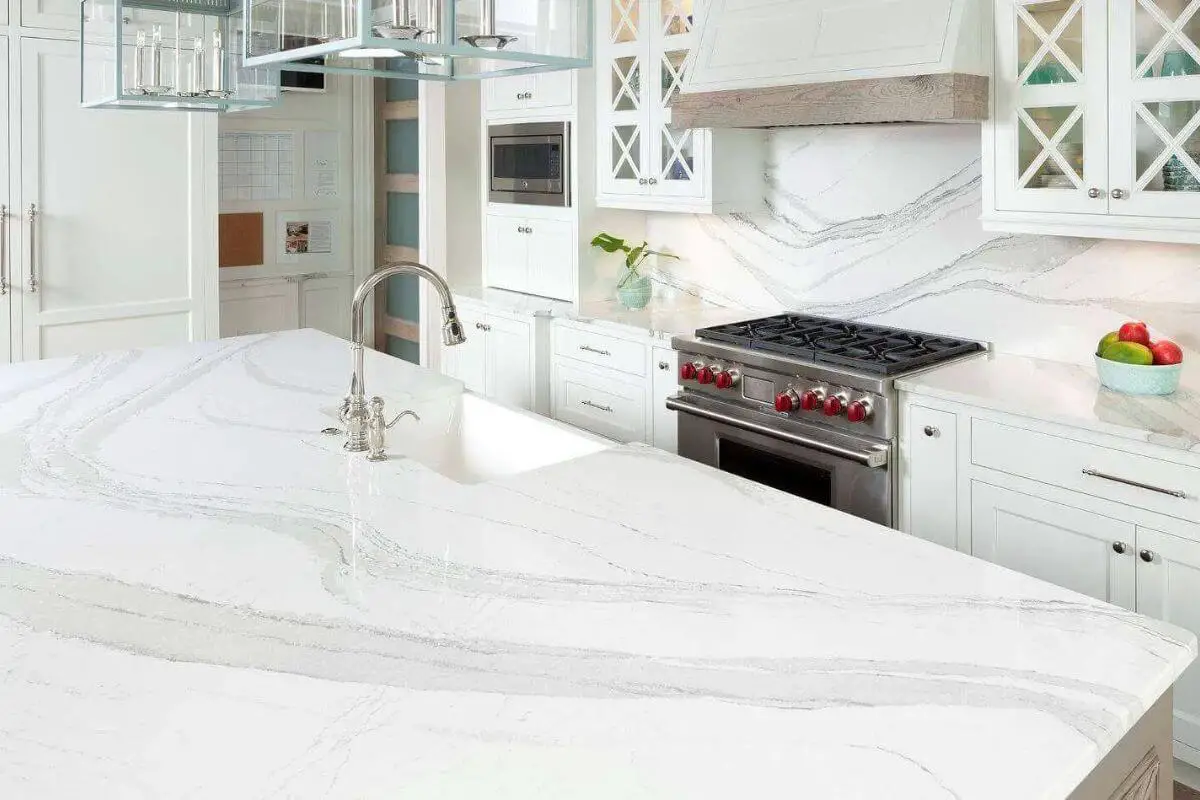In the world of countertops, two giants stand tall: Hanstone and Cambria. These two brands have become synonymous with elegance, durability, and style. If you’re embarking on a kitchen or bathroom renovation journey, choosing between Hanstone and Cambria can be a tough decision. In this article, we’ll delve into the details, comparing the two in various aspects to help you make an informed choice that suits your aesthetic preferences and practical needs.
1. Introduction: The Battle of Quartz Countertops
The realm of countertops has evolved beyond its utilitarian purpose. It now serves as a canvas for artistic expression and a symbol of sophistication. Hanstone and Cambria have capitalized on this trend, offering exquisite quartz countertops that have captivated homeowners and designers alike.
2. Composition and Quality
Both Hanstone and Cambria craft their countertops from natural quartz crystals, one of the hardest minerals on Earth. However, the ratio of quartz to resins and additives can vary between the two brands, influencing the final product’s quality, strength, and durability.
3. Color and Design Variety
When it comes to aesthetics, Hanstone and Cambria shine in distinct ways. Hanstone boasts a diverse range of colors and patterns, often drawing inspiration from nature. On the other hand, Cambria is renowned for its bold and unique designs that can become the focal point of any space.
4. Durability and Resistance
Quartz countertops are celebrated for their resilience, and both Hanstone and Cambria live up to this reputation. They are highly resistant to scratches, heat, and staining, making them ideal companions for busy kitchens and bathrooms.
5. Maintenance and Care
The low-maintenance nature of quartz countertops is a significant draw for homeowners. Hanstone and Cambria require simple cleaning with mild soap and water, eliminating the need for specialized cleaners.
6. Pricing Considerations
Budget considerations often play a pivotal role in decision-making. While both brands fall in the higher price range due to their premium quality, Hanstone might offer slightly more budget-friendly options in some cases.

7. Installation Process
Both Hanstone and Cambria countertops necessitate professional installation due to their weight and precise fitting requirements. The installation process ensures a seamless and visually appealing result.
8. Environmental Impact
As conscientious consumers, understanding the environmental impact of our choices is crucial. Both Hanstone and Cambria are committed to sustainable practices, with Cambria notably being the first quartz countertop manufacturer to receive GREENGUARD certification for indoor air quality.
9. Warranty Coverage
Warranty coverage provides peace of mind, and both Hanstone and Cambria offer limited lifetime warranties. It’s essential to review the terms and conditions to understand the extent of coverage.
10. Which One to Choose? A Decision-Making Guide
Choosing between Hanstone and Cambria ultimately boils down to your preferences and requirements. If you value a wide variety of natural-inspired designs, Hanstone might be your go-to. On the other hand, if you’re seeking bold and unique design statements, Cambria could be the better fit.
11. Conclusion: Enhancing Your Living Space with Quartz Countertops
In the Hanstone vs. Cambria showdown, there’s no definitive winner – it’s a matter of aligning your personal style, needs, and budget. Whichever you choose, both brands promise to elevate your living spaces with their exquisite quartz creations.
12. FAQs
Q1: Are Hanstone and Cambria countertops stain-resistant?
A: Yes, both Hanstone and Cambria countertops are highly stain-resistant, making them ideal for kitchens and bathrooms.
Q2: Can I place hot pots and pans directly on these countertops?
A: While both brands offer heat-resistant surfaces, it’s advisable to use trivets or pads to prolong the countertop’s lifespan.
Q3: How often should I seal my Hanstone or Cambria countertop?
A: Neither Hanstone nor Cambria countertops require sealing, as they are non-porous and do not absorb liquids.
Q4: Can I use abrasive cleaners on these countertops?
A: It’s best to avoid abrasive cleaners, as they may dull the surface’s shine. Stick to mild soap and water for routine cleaning.
Q5: Are Hanstone and Cambria countertops stain-resistant?
A: Yes, both Hanstone and Cambria countertops are highly stain-resistant, making them ideal for kitchens and bathrooms.
Q6: Can I place hot pots and pans directly on these countertops?
A: While both brands offer heat-resistant surfaces, it’s advisable to use trivets or pads to prolong the countertop’s lifespan.
Q7: How often should I seal my Hanstone or Cambria countertop?
A: Neither Hanstone nor Cambria countertops require sealing, as they are non-porous and do not absorb liquids.
Q8: Can I use abrasive cleaners on these countertops?
A: It’s best to avoid abrasive cleaners, as they may dull the surface’s shine. Stick to mild soap and water for routine cleaning.
Q9: Can these countertops be used outdoors?
A: While quartz is durable, it’s recommended to use these countertops indoors, as prolonged exposure to sunlight and weather elements can affect their appearance and longevity.
Q10: How do Hanstone and Cambria compare to other countertop materials like granite or marble?
A: Hanstone and Cambria offer the advantage of being non-porous and require less maintenance compared to natural stones like granite or marble.
Q11: Are there any limitations on the edge profiles for these countertops?
A: Both brands offer a variety of edge profiles to choose from, allowing you to customize the look of your countertops according to your preferences.
In your quest for the perfect countertop, Hanstone and Cambria stand out as top contenders. Each brings its unique charm, quality, and style to the table. By understanding their attributes and considering your personal preferences, you’ll be well-equipped to make a choice that enhances the beauty and functionality of your living spaces.



